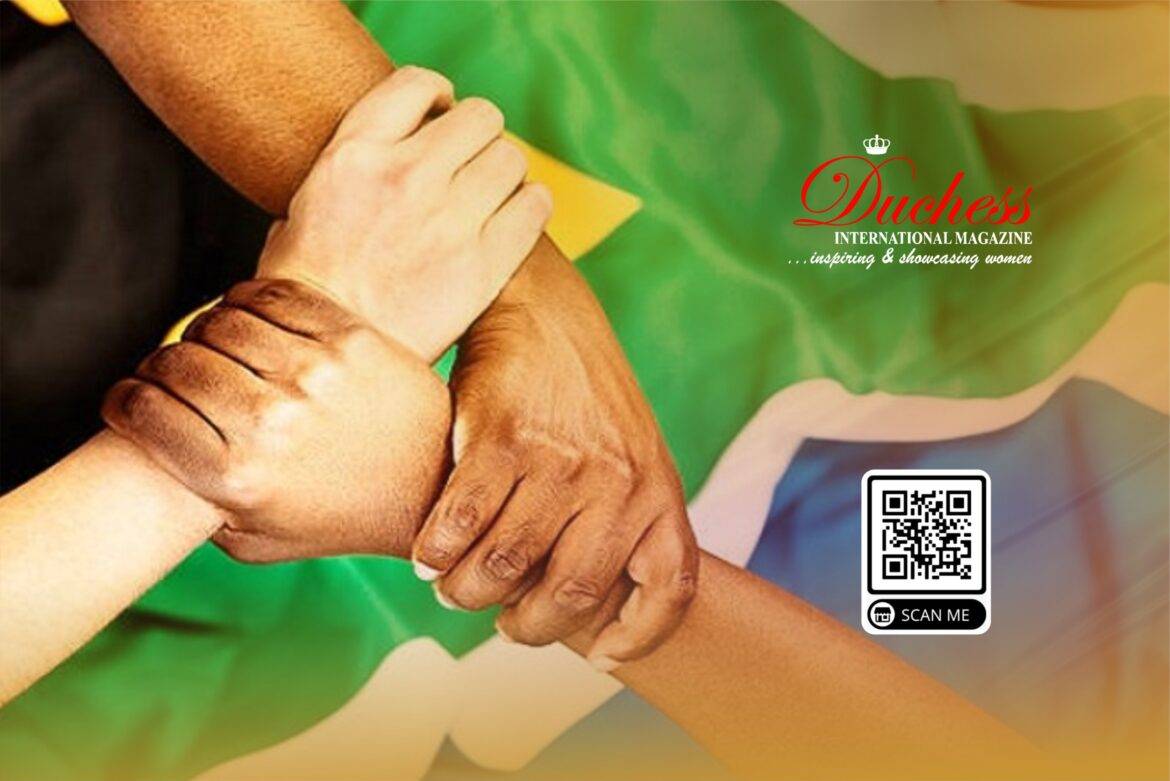In Orange Farm township, just an hour south of Johannesburg, a group of women gather weekly under the pink-tinged glow of a run-down community center. Here, they share their stories of survival and strength, reshaping their trauma into narratives of courage. This transformative journey is part of an innovative counselling initiative led by Ncazelo Ncube-Mlilo, a Zimbabwean psychologist dedicated to developing culturally sensitive therapeutic tools.
Every Wednesday, 30 women attend the sessions, their notebooks adorned with stickers spelling out “COURRAGE.” Each letter represents a theme in the eight-week group counselling program, encouraging participants to reframe their trauma. “Today, we are on the second R of COURRAGE: ‘Reframing’,” says Karabo Ramabulana, the session facilitator.
One participant, Palesa Hlohlolo, shares her harrowing experience of domestic violence and the life-changing moment she was caught in the crossfire of a shooting, mistakenly declared dead, and subsequently spent months relearning how to walk. “After all the challenges I’ve been through, I’m thankful because now I can be open to help others,” she says.
Ncazelo Ncube-Mlilo’s journey began in the early 2000s, working with HIV/AIDS orphans and realizing that existing therapeutic tools were not effective for these children. This led to the creation of the Tree of Life, a therapeutic program using the tree metaphor to discuss heritage, hardships, and dreams. The method has gained international recognition and has been implemented in over 40 countries.
In 2016, Ncube-Mlilo founded Phola, a charity named after the Zulu word for “heal,” aiming to provide “an African solution for African people.” Phola now reaches more than 10,000 individuals annually across Johannesburg’s townships, helping them cope with the lingering effects of apartheid, high unemployment rates, and pervasive violence.
Ncube-Mlilo emphasizes the importance of locating expertise within communities rather than relying solely on professional therapists. Initially conducting sessions from a camper van, Phola has grown to 40 staff members running programs in schools, clinics, trailers, and community halls. Despite budget cuts and the withdrawal of government support, Phola continues to thrive, primarily funded by international donors and foundations.
Participants often form their own support groups after completing the program. Lerato Magongwa, who joined the “OUTRAGED” program after losing his job, now runs a men’s forum in Orange Farm. “As a man, you grow up with many expectations: you need to be a leader, a provider, a protector,” he says. The sessions allowed him to “roar out” his anger and problems, providing clarity and strength to continue with his life.
Mental health in South Africa remains a critical issue, deeply rooted in the unresolved trauma of apartheid. With fewer than one psychologist for every 100,000 people, mental health support is scarce, especially for day-to-day coping with stress, anxiety, and depression. Stigma further exacerbates the problem.
Phola’s programs, however, offer a beacon of hope. By fostering resilience and community support, they help individuals move from vulnerability to a place of strength, providing tangible evidence of healing. “Not enough was done to respond to the impact of apartheid on people’s lives,” says Ncube-Mlilo. “The trauma was left unresolved and has had ripple effects in communities, families, schools, and everywhere.”
Through initiatives like Phola, Ncazelo Ncube-Mlilo is making a profound difference, helping South Africans heal and rebuild their lives, one story of courage at a time.



